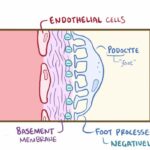Mineral deficiency occurs when the body lacks essential minerals required for proper physiological functions. These deficiencies can lead to various health issues, including weakened bones, fatigue, and impaired immune response.

Causes of Mineral Deficiency
Several factors contribute to mineral deficiency, including:
- Poor Diet: A lack of nutrient-rich foods leads to insufficient mineral intake.
- Malabsorption: Conditions like celiac disease and Crohn’s disease affect nutrient absorption.
- Medications: Certain drugs interfere with mineral absorption.
- Increased Demand: Pregnancy, lactation, and intense physical activity increase mineral requirements.
- Unhealthy Lifestyle Choices: Excessive alcohol consumption and smoking reduce mineral levels.
Essential Minerals and Their Functions
The human body requires both macro and trace minerals to function optimally:
Macro Minerals
| Mineral | Function | Sources |
|---|---|---|
| Calcium | Bone health, muscle function | Dairy, leafy greens, almonds |
| Magnesium | Nerve function, energy production | Nuts, seeds, whole grains |
| Potassium | Fluid balance, muscle contraction | Bananas, oranges, potatoes |
| Sodium | Nerve signaling, hydration | Salt, processed foods |
| Phosphorus | DNA formation, bone health | Meat, dairy, beans |
Trace Minerals
| Mineral | Function | Sources |
| Iron | Oxygen transport, energy production | Red meat, spinach, legumes |
| Zinc | Immune function, wound healing | Nuts, seeds, shellfish |
| Copper | Red blood cell formation | Shellfish, nuts, whole grains |
| Selenium | Antioxidant properties | Brazil nuts, seafood, eggs |
| Iodine | Thyroid function | Iodized salt, dairy, fish |
How to Prevent Mineral Deficiency
1. Maintain a Balanced Diet
Consume a variety of nutrient-dense foods such as:
- Fresh fruits and vegetables
- Whole grains
- Lean proteins
- Dairy or plant-based alternatives
- Nuts and seeds
2. Enhance Nutrient Absorption
- Pair iron-rich foods with vitamin C sources to boost absorption.
- Avoid excessive caffeine and alcohol, which inhibit mineral uptake.
- Consume healthy fats for better fat-soluble vitamin absorption.
3. Consider Mineral Supplements
- Multivitamin-mineral supplements can help fill dietary gaps.
- Consult a healthcare professional before taking supplements to prevent overconsumption.
4. Stay Hydrated
Proper hydration supports efficient mineral transport and absorption in the body.
5. Manage Underlying Health Conditions
If you have digestive disorders or chronic illnesses, seek medical advice to ensure proper nutrient absorption.
Lifestyle Changes for Optimal Mineral Retention
- Exercise Regularly: Physical activity supports bone density and cardiovascular health.
- Reduce Processed Foods: High sodium levels in processed foods can disrupt mineral balance.
- Get Regular Health Check-ups: Routine blood tests can help detect deficiencies early.
Preventing mineral deficiency requires a proactive approach through a well-balanced diet, proper hydration, and a healthy lifestyle. By understanding the essential minerals and their functions, individuals can make informed dietary choices to maintain optimal health.

